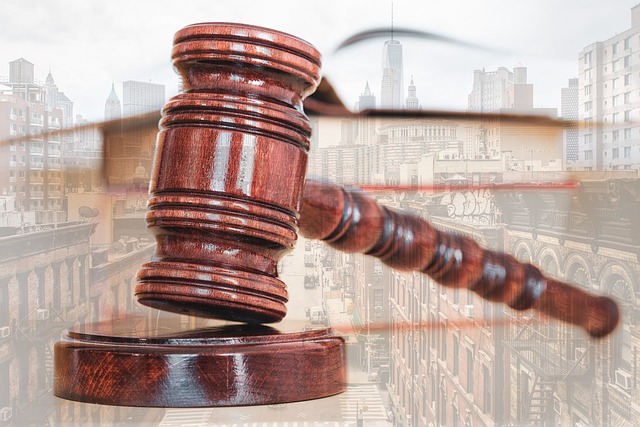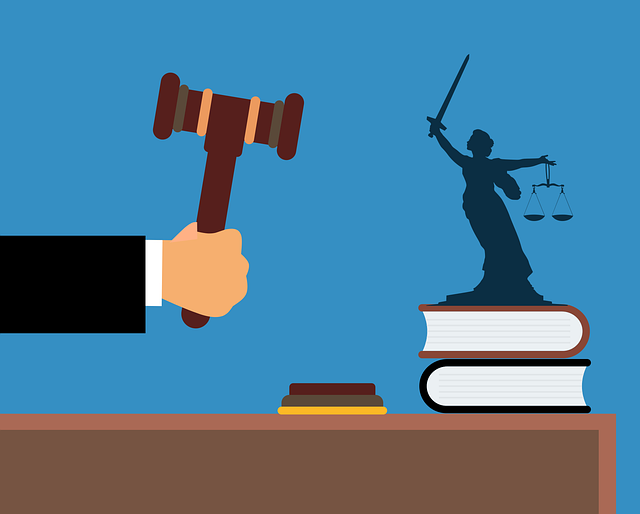Corporate crime investigations tackle misconduct like fraud and environmental violations, with a focus on digital evidence, executive interviews, and meticulous record scrutiny. Avoiding common pitfalls in personal injury claims, such as poor chain-of-custody management, is crucial for successful prosecution. Effective interviewing techniques, including active listening and open-ended questions, build trust and enhance accuracy, key to navigating complex white-collar cases and achieving favorable outcomes.
Corporate Crime Investigations play a pivotal role in upholding integrity within organizations. This article serves as a comprehensive guide, delving into key aspects of investigating corporate misdeeds. We explore essential topics such as recognizing red flags in financial records—crucial for unearthing fraudulent activities. Furthermore, we analyze common pitfalls in evidence collection and provide effective interviewing strategies to gather accurate information. Understanding these elements is vital to navigate the complexities of Corporate Crime Investigations, ensuring justice and accountability, especially in contrast to the nuances of Common Mistakes in Personal Injury Claims.
- Understanding Corporate Crime Investigations
- Identifying Red Flags in Financial Records
- Common Mistakes in Evidence Collection
- Strategies for Effective Interviewing Techniques
Understanding Corporate Crime Investigations
Corporate Crime Investigations delve into complex and high-stakes cases where businesses or their representatives engage in illegal activities. Understanding this process is crucial for ensuring justice and protecting stakeholders, especially when dealing with potential Common Mistakes in Personal Injury Claims. Many investigations uncover misdeeds such as fraud, money laundering, or environmental violations, which often have significant financial and reputational implications for the corporate entities involved.
Skilled investigators must navigate challenging landscapes, from gathering digital evidence to interviewing executives, while avoiding pitfalls that could lead to the complete dismissal of all charges. In these intricate matters, a meticulous approach is essential to present a robust case. For his clients, achieving a favorable outcome in high-stakes cases hinges on thorough preparation, strategic decision-making, and an unwavering commitment to upholding legal standards.
Identifying Red Flags in Financial Records
In the course of corporate crime investigations, meticulous scrutiny of financial records is paramount to uncovering potential illicit activities. Often, the first signs of impropriety emerge from red flags in these records—anomalies that may seem insignificant at first glance but can signal deeper problems. Common mistakes in personal injury claims, for instance, include exaggerated medical expenses or fraudulent documentation. These errors can serve as red flags, prompting further investigation into an entity’s financial practices.
Investigators must be adept at recognizing inconsistencies, sudden shifts in spending patterns, or unusual transactions. By comparing these records against industry benchmarks and known legitimate practices, they can identify suspicious activities that might point to corporate crime. Moreover, understanding the interplay between financial data and the philanthropic and political communities can provide valuable insights during investigations, as such entities often serve as red herrings or hiding places for illicit funds. This strategic approach ensures that every thread is diligently pursued, ultimately enhancing the chances of successful prosecution for his clients.
Common Mistakes in Evidence Collection
In the intricate world of corporate crime investigations, evidence collection is a delicate process that can make or break a case. One must be vigilant to avoid common pitfalls that often weaken the integrity of evidence, leading to potential miscarriages of justice. A crucial aspect is ensuring the chain of custody, where the handling and storage of evidence must be meticulously documented and controlled to maintain its authenticity. Neglecting this fundamental practice can result in contaminated or tampered evidence, especially in complex white-collar and economic crime cases.
Another frequent mistake is the lack of proper documentation and organization. In personal injury claims, as with corporate investigations, meticulous record-keeping is vital. Inaccurate or incomplete case files can lead to critical gaps in evidence, making it challenging to reconstruct events accurately. Moreover, with an unprecedented track record of technological advancements, digital evidence requires specialized handling and preservation methods to avoid data manipulation or loss, which are essential for building a robust defense strategy in general criminal defense cases.
Strategies for Effective Interviewing Techniques
In corporate crime investigations, effective interviewing techniques are paramount to uncovering crucial information. One must avoid common pitfalls, such as leading questions that may sway the witness’s recollection and causing them to provide biased answers. Instead, interviewers should focus on open-ended queries that encourage detailed narratives, allowing for a comprehensive understanding of events. Active listening is another vital skill; demonstrating empathy and genuine interest can foster trust, encouraging individuals to share sensitive information openly.
Moreover, the context in which interviews are conducted matters greatly. Creating a comfortable yet professional environment can significantly impact cooperation rates. Interviewers should also be vigilant about their body language, ensuring it conveys non-judgmental openness. By mastering these strategies and steering clear of typical errors like assuming credibility or rushing through questions, investigators enhance their chances of securing accurate information—especially when dealing with intricate white collar and economic crimes cases. These techniques are equally applicable in navigating the complexities of philanthropy and political communities, where winning challenging defense verdicts hinges on meticulous fact-finding.
Corporate crime investigations require a meticulous approach, from recognizing key red flags in financial records to implementing effective interviewing strategies. By understanding common pitfalls, such as missteps in evidence collection, professionals can enhance their accuracy and resolve cases more efficiently. These insights are crucial in navigating complex corporate landscapes, ensuring justice, and upholding ethical standards, especially with the increasing importance of corporate governance and accountability.






